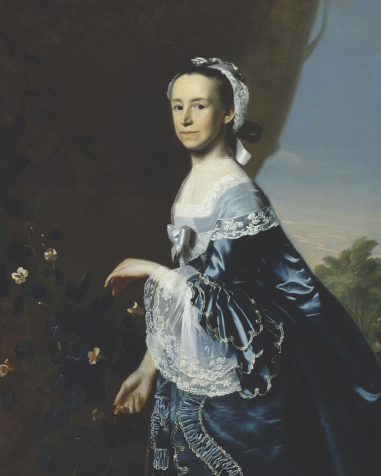The Antifederalists.
Printed Page 212 Chapter Chronology
The Antifederalists. The Antifederalists were a composite group, united mainly in their desire to block the Constitution. Although much of their strength came from backcountry areas long suspicious of eastern elites, many Antifederalist leaders came from the same social background as Federalist leaders. The Antifederalists also drew strength in states that were already on sure economic footing, such as New York, which could afford to remain independent. Probably the biggest appeal of the Antifederalists' position lay in the long-nurtured fear that distant power might infringe on people's liberties.
Antifederalists
Opponents of ratification of the Constitution. Antifederalists feared that a powerful and distant central government would be out of touch with the needs of citizens. They also complained that the Constitution failed to guarantee individual liberties in a bill of rights.

But by the time eight states had ratified the Constitution, the Antifederalists faced a difficult task. First, they were no longer defending the status quo now that the momentum lay with the Federalists. Second, it was difficult to defend the confederation government with its admitted flaws. Even so, they remained genuinely fearful that the new government would be too distant from the people and could thus become corrupt or tyrannical. "The difficulty, if not impracticability, of exercising the equal and equitable powers of government by a single legislature over an extent of territory that reaches from the Mississippi to the western lakes, and from them to the Atlantic ocean, is an insuperable objection to the adoption of the new system," wrote Mercy Otis Warren, an Antifederalist woman writing under the name "A Columbia Patriot."
The new government was indeed distant. In the proposed House of Representatives, the only directly democratic element of the Constitution, one member represented some 30,000 people. How could that member really know or communicate with his whole constituency, Antifederalists worried. They also worried that representatives would always be elites and thus "ignorant of the sentiments of the middling and much more of the lower class of citizens, strangers to their ability, unacquainted with their wants, difficulties, and distress," as one Maryland man worried.
The Federalists generally agreed that the elite would be favored for national elections. Indeed, Federalists wanted power to reside with intelligent, virtuous leaders like themselves. They did not envision a government constituted of every class of people. "Fools and knaves have voice enough in government already," quipped one Federalist, without being guaranteed representation in proportion to their total population. Alexander Hamilton claimed that mechanics and laborers preferred to have their social betters represent them. Antifederalists disagreed: "In reality, there will be no part of the people represented, but the rich. ...It will literally be a government in the hands of the few to oppress and plunder the many."
Antifederalists fretted over many specific features of the Constitution, such as the prohibition on state-issued paper money, or the federal power to control the time and place of elections. The most widespread objection was the Constitution's glaring omission of any guarantees of individual liberties in a bill of rights like those contained in many state constitutions.
In the end, a small state — New Hampshire — provided the decisive ninth vote for ratification on June 21, 1788, following an intensive and successful lobbying effort by Federalists.